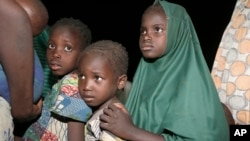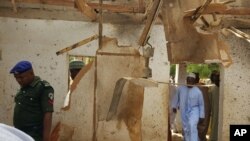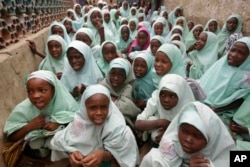The United Nations Children’s Fund says there has been an alarming surge in the number of children being used as suicide bombers by the militant Boko Haram in the conflict engulfing the Lake Chad region in West Africa.
Data gathered by the UN children’s fund shows children were used as suicide bombers in 27 attacks in the first quarter of 2017. That is three times more than during the same period last year and nearly the same number as the whole of 2016.
The militant Islamist group Boko Haram has been forcing children to blow themselves up in Nigeria, Chad, Niger and Cameroon since 2014. As the Islamist group finds itself on the run, it reportedly is resorting increasingly to this tactic to spread terror among civilian populations of the Lake Chad region.
UNICEF spokesman Christophe Boulierac says Boko Haram uses children, rather than adults, as human bombs because they can be easily manipulated and more likely to escape scrutiny. He tells VOA girls are mostly used in these attacks.
“Since January 2014, among the 117 children that have been used in suicide attacks, more than 80 percent of them are girls. So, girls are particularly exposed to this horrific practice,” he said.
Boulierac says children are viewed with deep suspicion by the authorities and public at large. He says children who have escaped captivity from Boko Haram often hide what they have experienced when they return to their communities.
“They fear the stigmatization and even sometimes the violent reprisals from their community who might at some point think that these children are still dangerous," he said. "It is important, in any case, to remember that these children are victims. They are not perpetrators.”
UNICEF says local authorities often hold children intercepted at checkpoints in prolonged periods of administrative custody. It is calling for an end to this practice and for the children who often are severely traumatized by their experiences to be immediately handed over to civilian authorities who can support them.






